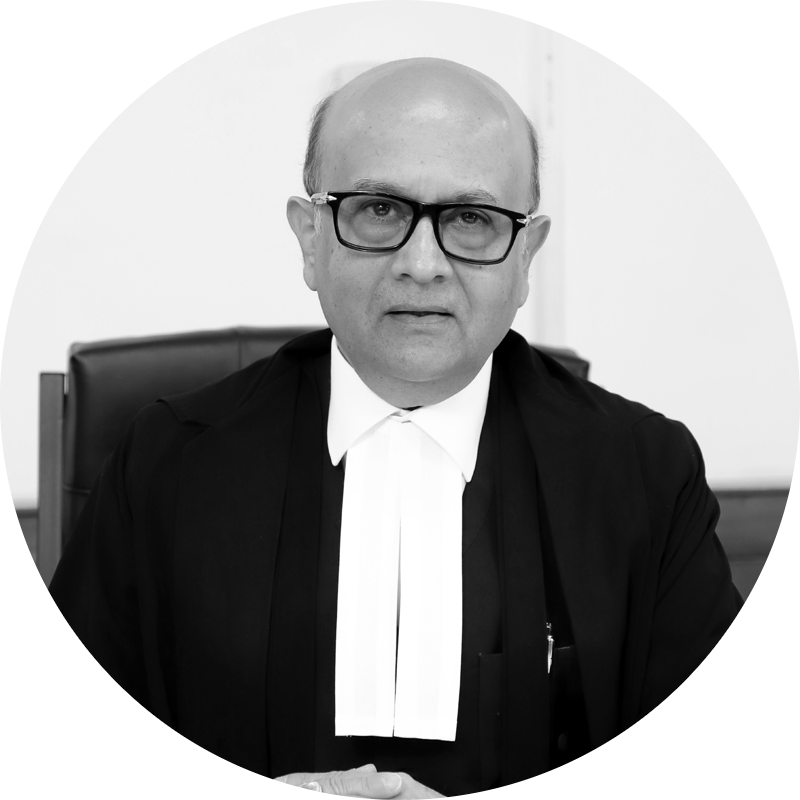Constitutionality of Sedition
SG Vombatkere v Union of India
The Supreme Court will decide if Section 124A of the Indian Penal Code, 1860, that criminalises sedition, is unconstitutional.
Pending
Parties
Petitioners: S.G. Vombatkere, Editor's Guild, Arun Shourie, Anil Chamadia, PUCL, Mahua Moitra, Patricia Mukhim, Anuradha Bhasin, Journalists Union of Assam, Kishorechandra Wangkhemcha, Kanhaiya Lal Shukla, Amooda Broadcasting, Shreya Broadcasting
Lawyers: Kapil Sibal, Gopal Shankarnarayanan, C.U. Singh, Salman Khurshid, Colin Gonsalves, Sanjay Parikh, Vrinda Grover, Shyam Divan, Prashant Bhushan, Rajeev Dhavan
Intervenors: Sashi Kumar; Foundation for Media Professionals; Dr. Sanjay Jain
Lawyers:
Respondent: Union of India
Lawyers: AG K.K. Venugopal, SG Tushar Mehta
Case Details
Case Number: WP (C) 682/2021
Next Hearing: July 18, 2022
Last Updated: September 12, 2023
TAGS: Criminal Law, Free Speech, Judicial Review, Liberty, Sedition
Key Issues
Does the criminalisation of sedition violate the Right to Freedom of Speech and Expression?
Is the criminalisation of sedition a ‘reasonable restriction’ on the Right to Freedom of Speech and Expression?
Does the criminalisation of sedition violate the Right to Equality?
Does the criminalisation of sedition violate the Right to Life and Personal Liberty?
Case Description
On February 17th 2021, two journalists, Kishore Wangkhemcha and Kanhaiya Lal Shukla, filed a petition in the Supreme Court challenging the constitutionality of sedition law. The law is a holdover from India’s days as a British colony and continues to be applied through Section 124A of the Indian Penal Code, 1860. S 124A describes sedition as ‘attempts to excite disaffection towards the Government established by law in India.’
Mr. Wangkhemcha, a Manipur-based journalist and anchor for local news channel ISTV, was arrested for his criticism of the Manipur Government and its relationship with the ruling NDA government—calling the Chief Minister a ‘puppet of Hindutva’ in a video uploaded to social media. Mr. Shukla, a journalist from Chattisgarh, participated in a different brand of political commentary by posting cartoons on social media which satirised the fake encounters allegedly conducted by the Gujarat police between 2002 and 2006.
Mr. Shukla was charged with sedition in April 2018 and Mr. Wangkhemcha was charged with the same in August 2018. They subsequently filed the 2021 Supreme Court petition challenging the law, questioning its roots and current application. The law’s broad mandate has historically been criticised as a tool to stifle free speech. This criticism has been echoed in the petition filed by Mr. Wangkhemcha and Mr. Shukla—who argue that the provision’s vagueness allows for the arbitrary application of sedition law to quell dissent.
Nine other petitions challenging the law on sedition have been tagged with the one filed by Mr. Wangkhemcha and Mr. Shukla, amplifying the renewed traction around the constitutionality of sedition. The petitioners include:
- Major General S.G. Vombatkere;
- The Editors Guild of India;
- The Journalists Association of Assam;
- Mr. Arun Shourie, former Minister of Communications and Editor of the Times of India and The Indian Express;
- The People’s Union for Civil Liberties;
- Ms. Mahua Moitra, Member of Parliament from the Trinamool Congress;
- Ms. Patricia Mukhim, the Editor of the Shillong Times;
- Mr. Anil Chamadia, Chairman of the Media Studies Group.
Accompanying this expanding list of petitioners are new arguments against the constitutionality of sedition law. Alongside its effect on free speech, questions on its proportionality and whether the law has a place in India today are raised—especially given the country the law was borrowed from, the United Kingdom, has since repealed it. Currently, the Supreme Court’s verdict in Kedar Nath v Union of India (1962) serves precedence when determining whether actions or speech are seditious. The Court held that there must be an ‘incitement to violence’ or ‘tendency or intention to create public disorder’ in order to prove that an act or speech is seditious. However, this Judgment has been criticised for contradicting itself.
Since May 5th, 2022 the Supreme Court has been considering whether to refer the matter to a seven-Judge Bench. However, the Union Government stated its intention to reconsider the law on sedition on May 9th, 2022. In the meantime, the Supreme Court chose to exercise an additional layer of caution on May 11th, 2022, ordering that ‘no coercive action’ be taken in sedition cases that remain pending while the Union re-examines the law.



